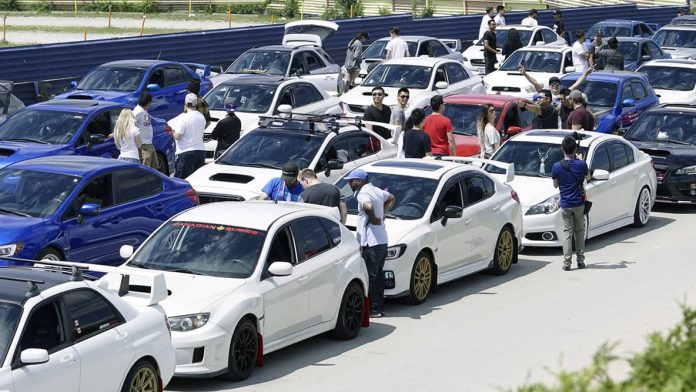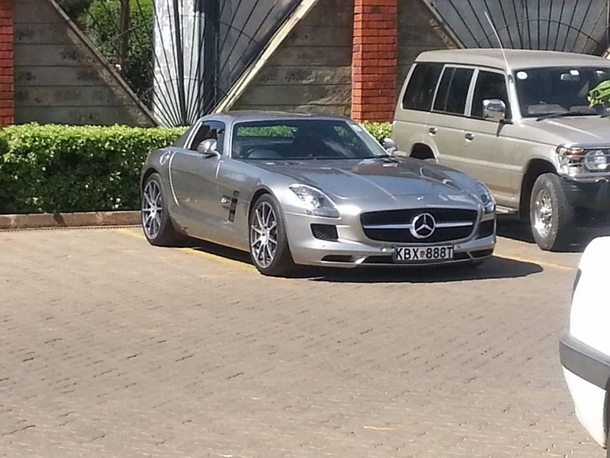The Kenya vehicle industry’s robust start to the year could be dealt a blow by the escalating Covid-19 disease that is decimating the global economy.
Data from the Kenya Motor Industry (KMI) Association shows dealers registered a 31 per cent jump in sales of new units in February, driven by increased demand for trucks and commercial vehicles.
Total vehicle sales in February increased by 250 to reach 1,035 from the 785 units sold in January.
This trend could, however, be reversed with firms expecting a slowdown in orders as the coronavirus pandemic depresses most industries around the world.
Isuzu East Africa, which dwarfs other Kenyan companies in the sale of trucks and commercial vehicles, sold the highest units in February, with a total of 420.
In the same month, Toyota, which came second in sales, managed to trade off 235 units. For both companies, the units sold increased significantly, from 260 and 191 respectively that they managed in January.
Ford, Tata, Porsche and Volkswagen were among others that had marginal increases in sales over the month.
Isuzu credited the government’s release of pending bills in January for the stability in the markets. The government released Sh30.35 billion for pending bills in addition to Sh126.57 billion to county governments as their equitable share of revenue raised nationally.
The money was to clear dues owed to suppliers, contracted companies and lenders that were struggling to maintain operations.
“Isuzu has also benefited from the government’s directive last year to all ministries and public agencies to procure their vehicles from local assemblers to promote local manufacturing under the Buy Kenya, Build Kenya initiative,” a company spokesperson who did not wish to be identified told Financial Standard.
Repeal of the interest rate cap, the firm said, also had a positive impact as more people have been able to access loans. The rate caps had reduced access to credit for small businesses and retail customers with banks unwilling to lend to risky borrowers.
Toyota said their robust supply chain and efficient stocking had seen the company ride the tempestuous start of the year, posting better results for February than January. However, the future remains unpredictable as the coronavirus pandemic escalates, the firm said.
“The first two months’ sales were largely unaffected by the coronavirus due to the robust stocking and supply chain in place. However, there are rapidly evolving scenarios both from the source countries and our local market which will inform the next steps in the future as it is difficult to predict how things will pan out,” said Toyota East Africa General Manager for Sales, Marketing and Logistics, Andrew Omolo.
For most car brands, the numbers continued to climb in February. Single cab pick-ups were the most popular vehicle class, selling 215 of the total vehicles that were sold in the month.
Trucks of between 10 and 14 tonnes sold 156 units while smaller capacity trucks of 3.5 to nine tonnes sold 135 units.
Porsche and BMW, with four units, were the best-selling luxury cars of the month.
Bentley, MAN, Subaru and Suzuki (by Toyota Kenya) made their first sales in February, having made no sales in January.
Toyota, which started local assembly of seven models of the Hilux pick-up trucks in October last year, churned out 300 units by February.
They aim to produce 500 units in the year to October 2020.
The spread of the novel coronavirus has put a damper on many businesses, especially as importation and exportation slows down.
Mr Omolo said the company is planning ahead as the situation remains unpredictable.
“All due diligence is being deployed to secure the supply chain to serve our customers even as we take measures to curtail the spread of the coronavirus,” he told Financial Standard.
As confirmed cases of coronavirus near 250,000 globally, countries are taking measures to protect their citizens from contracting the disease. Over 10,000 people have already succumbed to the viral disease.The pandemic has already started impacting on big corporations as some lay off workers and others scale down.
Also, importation and exportation have been massively affected, and the motor vehicle industry is primed to feel the shock. Isuzu appeals for the government’s intervention to keep the industry robust.“We ask the government to defer the payment of corporation tax for the next two to three months.
They should also suspend value added tax to enable businesses survive this unprecedented season of business disruption,” said the company spokesperson.“We are also requesting the government to waive levies for imported raw materials for the next few months. This is because we are experiencing increased costs in shipment and delays in excess of 10 days, which has increased our cost of production materials.”
Motor industry volumes had initially been projected to grow to 11,640 units this year.In the first two months of the year, the industry grew by 8.3 per cent. The projected growth is a tall order in the face of the ensuing calamity.Isuzu expects that there will be a slowdown in activity and orders reduction for the next few months.
However, an agreement signed with NCBA Bank that caps interest on asset financing at 13 per cent for the next six months will not be disrupted.Local sales for fully built units for Isuzu soared by 389 per cent in February, up from 29 to 142.Toyota’s increased by one unit to 172.
Tata, Volkswagen, Porsche, BMW and Mercedes Benz also saw increases in the same category, while Maruti and Mitsubishi recorded a drop. For the completely knocked down vehicle sales, Isuzu, Toyota, Hyundai and Tata were among those whose figures increased marginally over the month.
SOURCE: standardmedia.co.ke







![Here are some of the best tuned cars in kenya by state of the art garages [PHOTOS]](../../../blog/wp-content/uploads/2013/11/29402_10151301757042065_340470732_n-e1384498044289.jpg)

![Top 20 Used Cars to Avoid Buying in Kenya – [PHOTOS]](../../../blog/wp-content/uploads/2013/11/top-used-unreliable-cars-to-avoid2-100x70.jpg)



